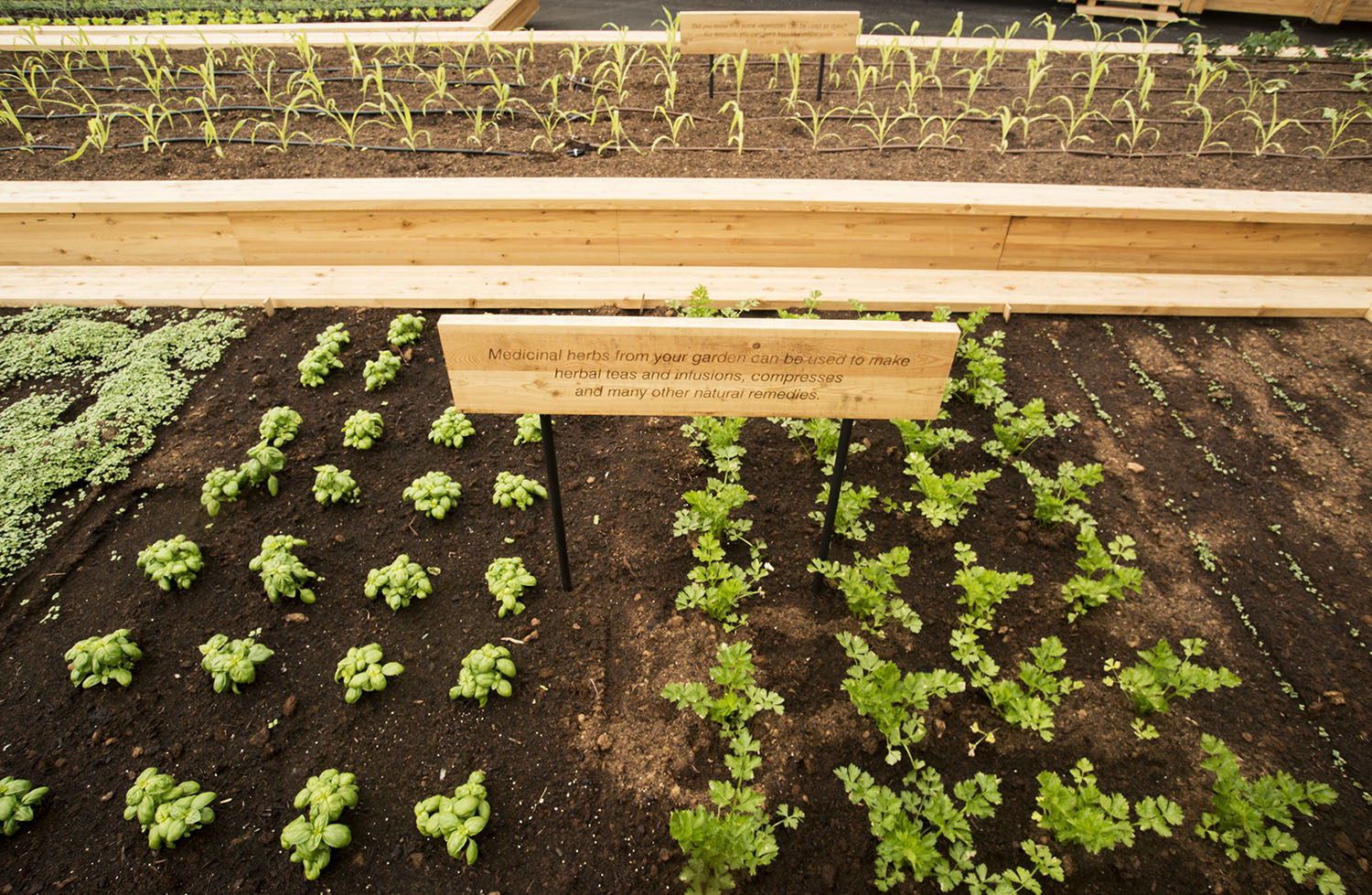
To create a successful box garden, you need to dig a shallow trench below the ground level. Additionally, place metal brackets around the corners. This will provide stability for the box. Metal brackets are less secure than corner posts. The posts should be buried about one foot under the soil. You should also ensure the posts are equal in height to the box wall.
The depth of the soil in the box is important because most plants' feeder roots are located in the first six inches of the soil. Deep roots are more productive and will make plants grow taller. Do not build a box larger than 18 inches, as this can lead to soil erosion or weight pressure. To reduce soil weed stress, choose an elevated bed if you are a beginner. If you don't have any experience, consider building a raised bed garden instead.

You can also weight the soil with rocks or loose dirt to stop weeds. After placing the stone or dirt, make sure that the cloth is folded into its middle. This will make the soil more stable and encourage plants to grow stronger. To prevent weeds from growing, water the soil thoroughly with a hand-held hose or spray bottle. Don't forget about checking the soil pH levels after watering your plants.
Before you can build a raised beds garden, make sure that your soil is level. To ensure that the sun shines through your garden, you might need to plant a tree or shrub if it is shaded. If you don’t have this, it is important to level the terrain before you start building. You can also use an AllDown organic herbicide, which is 20% vinegar/citric acid and OMRI-listed.
The location is important when planning your garden. To make it easy to access, a raised garden bed needs to be near your house. You should think about where and how the garden will be located if you live in rural areas. You want to be able enjoy your garden every day. You should have it close to your house so that you can check on its health. To enjoy your garden and avoid pests, spend some time each day in it.

It is important to take into consideration the specific conditions of your locality. For example, if you live in an area that receives a lot of rain, you may need to install raised beds. In these cases, the raised beds can be a great choice for beginners. You can place a raised bed in a sunny area, so that the plants can grow in the shade. The ground will remain level and free from weeds.
FAQ
What length of time can I keep an indoor flower alive?
Indoor plants can last for many years. To ensure new growth, it's important that you repot indoor plants every few years. Repotting is simple. Remove the old soil and place fresh compost.
When should you plant flowers?
When the weather is milder and the soil has a good moisture content, spring is the best time to plant flowers. Planting flowers should be done after the first frost if you live in a cold climate. The ideal temperature for indoor gardening is 60 degrees Fahrenheit.
Can I grow vegetables inside?
Yes, you can grow vegetables indoors during winter. You will need to buy a greenhouse and grow lights. Before buying a greenhouse, check with your local laws.
Statistics
- According to a survey from the National Gardening Association, upward of 18 million novice gardeners have picked up a shovel since 2020. (wsj.com)
- As the price of fruit and vegetables is expected to rise by 8% after Brexit, the idea of growing your own is now better than ever. (countryliving.com)
- 80% of residents spent a lifetime as large-scale farmers (or working on farms) using many chemicals believed to be cancerous today. (acountrygirlslife.com)
- Most tomatoes and peppers will take 6-8 weeks to reach transplant size so plan according to your climate! - ufseeds.com
External Links
How To
How can I keep my vegetable garden weed-free?
Growing healthy vegetables is difficult because of weeds. They compete for space, water, nutrients, sun, and sunlight. These tips can help prevent them taking over your garden.
-
When they flower, take all the plants with you
-
Take out any plant debris from the base of your plant
-
Use mulch
-
Get water regularly
-
Rotate crops
-
Don't let the grass grow too long
-
Keep soil moist
-
Plant early
-
Harvest often
-
Make compost
-
Use pesticides sparingly
-
Get organic vegetables
-
Get heirloom seeds
-
Start small
-
Learn more about companion planting
-
Be patient
-
Enjoy gardening!